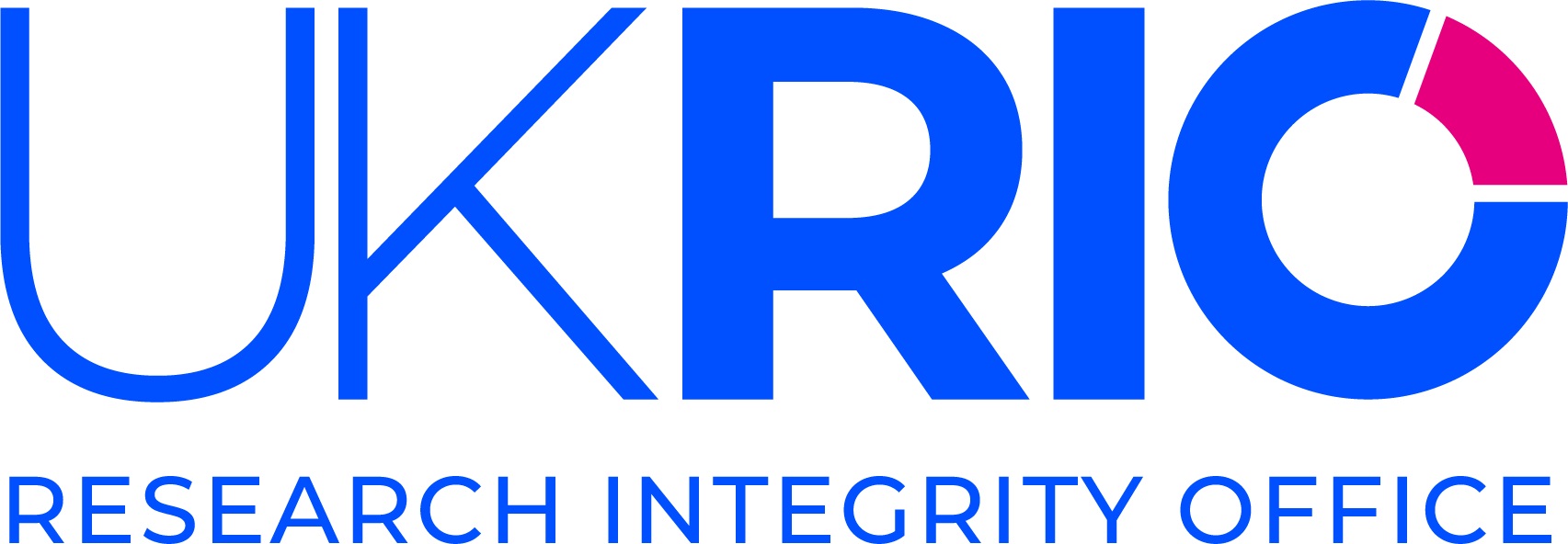The Authorship Integrity Toolkit

The Authorship Integrity Toolkit
Practical resources to support responsible authorship in research


UKRIO is pleased to present the Authorship Integrity Toolkit – a new collection of resources to help research contributors adopt and promote good authorship practice.
Developed through a cross-sector project commissioned by UK Research and Innovation (UKRI) and led by UKRIO, the toolkit was shaped with input from stakeholders across the research community. The result is a set of practical, adaptable resources designed to support both individual researcher contributors in their day-to-day practice and organisations in developing policies and managing projects.
▶️ Watch our launch event
On 24 September, UKRIO presented the Authorship Integrity Toolkit in the first Expert Webinar of 2025–2026. At this virtual event, the project team introduced the toolkit, reflected on the process behind its development, and shared guidance on how to use it. The session also featured a Q&A with attendees.
A full recording of the event is now available.
The tools:
Guidance on Good Authorship Practice
A guidance on authorship in research, offering practical advice to foster a positive culture of best practice in authorship.
Model Authorship Dispute Procedure
A model procedure providing a structured and impartial process for resolving authorship disputes.
Template Authorship Strategy Agreement
An editable template to define credit for research outputs, support clear discussions, manage expectations, and promote fair authorship practices.
About the tools
Project background
Guidance on Good Authorship Practice
This guidance provides practical advice to support a positive culture of good authorship practice. It clarifies commonly accepted standards, offers contextual examples, and suggests strategies to help contributors across all disciplines navigate challenges. While the focus is on authorship of scholarly journal articles, the principles equally apply to a wide range of outputs, including articles disseminated via other methods (e.g. open access platforms), as well as software, datasets, creative works and visual productions.
The guidance is relevant both to individual contributors and to organisational leads seeking direction on best practice. It is recommended that it be used alongside the Template Authorship Strategy Agreement and, where needed, the Model Authorship Dispute Procedure. Ideally, authorship should be discussed and agreed early in the research process, revisited as work progresses, and documented clearly to minimise the risk of misattribution or dispute.
Model Authorship Dispute
Procedure
This model procedure provides a structured, impartial framework for addressing authorship disputes in research. It is designed to help contributors resolve disagreements promptly and fairly, in line with established principles of research integrity, while protecting both the integrity of the work and the relationships between collaborators.
The procedure complements UKRIO’s Guidance on Good Authorship Practice and Template Authorship Strategy Agreement, which promote early communication and clear expectations around authorship. While prevention through open dialogue is always preferable, this resource sets out a process for managing disputes when they arise.
The model outlines a three-step approach:
- Informal discussions between contributors.
- Informal discussions with assistance from an impartial mediator.
- Formal investigation and adjudication led by the host organisation.
This guidance is applicable across disciplines and research settings, and can be adapted to local contexts and organisational processes. It is intended for all contributors to research and innovation, including academic and non-academic partners.
Template Authorship Strategy Agreement
This template provides a flexible framework to support constructive discussions about authorship in research. Its purpose is to help contributors define and document how credit will be allocated, fostering transparency, managing expectations, and promoting fair and equitable practice.
It is provided as an editable Word document that can be downloaded and adapted to suit the needs of specific research projects and collaborations.
The agreement is not intended to be prescriptive or exhaustive. Instead, it should be treated as a living document that evolves with the project. As collaborations progress and new outputs emerge, roles and contributions may shift. The agreement should therefore be reviewed and updated regularly to reflect these changes and ensure authorship decisions remain fair and well-documented.
The template is structured in two parts:
- Section A – establishes an authorship strategy at the outset of a project, including oversight arrangements, potential outputs, stakeholder requirements, and collaborators’ expectations.
- Section B – designed for ongoing use as outputs are developed, allowing details to be recorded and updated for each research output.
The template is best used alongside UKRIO’s Guidance on Good Authorship Practice and, where relevant, the Model Authorship Dispute Procedure.
Why this toolkit matters
Authorship is one of the most visible and valued aspects of research. When approached thoughtfully, it recognises intellectual contributions, signals expertise, and plays a key role in shaping careers. It can also strengthen research relationships, clarify expectations, and celebrate the diverse contributions that make research possible. Beyond professional recognition, authorship is often a rewarding experience, offering opportunities to collaborate and contribute to a wider body of knowledge.
However, there are times when decisions on authorship can be challenging in practice. Challenges may arise from unclear criteria, disciplinary differences, misaligned expectations, power imbalances, or large and multi-partner collaborations. Disputes often concern the level or nature of contribution, the order of authorship, the inclusion or exclusion of contributors, or the fair recognition of intellectual input. If left unresolved, these issues can damage professional relationships, hinder career progression, and undermine the integrity of the research.
The tools developed through this project offer practical, sector-informed guidance to support good authorship practice and to prevent or resolve disputes. By encouraging clear communication and shared expectations, they aim to strengthen working relationships and foster healthier research environments.
How it was created
This toolkit was developed through Supporting Collaborative Thinking and Progress on Discussing Authorship Disputes, a project commissioned by UKRI and led by UKRIO.
Conceptualised by UKRIO and formally launched in spring 2025, the project was guided by an Authorship Advisory Group (AAG), made up of representatives from a wide range of stakeholders across the research community.
For more information on the project, see here.
Authorship workshops
To ensure broad input and diverse perspectives, UKRIO convened two authorship workshops in March 2025 — one held virtually and one in person. These sessions gave members of the research community an opportunity to share their experiences of authorship, discuss challenges, and provide feedback on draft versions of the toolkit resources. Participants reviewed three draft tools and suggested amendments, which were then considered and incorporated into the final published versions.
A detailed summary of the workshop proceedings can be found here.
Share your feedback
Our aim in this project was to co-develop the Authorship Integrity Toolkit with the research community – designed to reflect your needs and to evolve as those needs change.
To help ensure it remains a ‘living’ resource, we invite you to complete our feedback form. This short survey (5–8 minutes) is an opportunity to share how you are using the tools in your work and to suggest ways they could be improved. Responses can be submitted anonymously.
Need support?
If you have questions about the toolkit – including guidance on using or navigating individual tools – please contact us at info@ukrio.org.
Last updated: 25 September 2025
